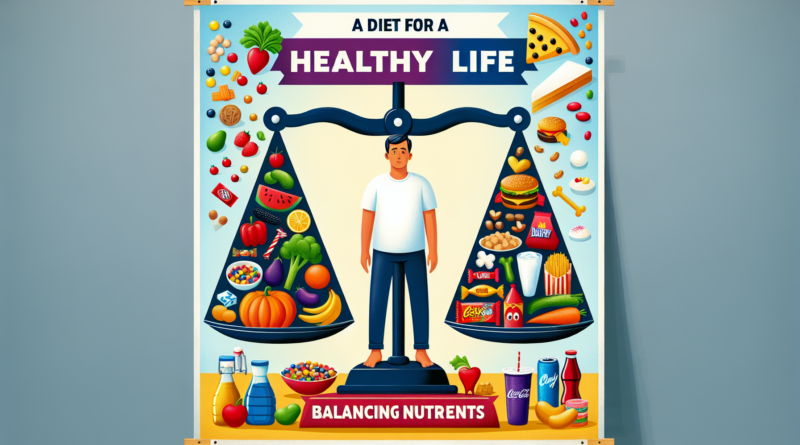A Diet for a Healthy Life: Balancing Nutrients
A balanced diet is essential for maintaining optimal health and well-being. It involves consuming the right proportions of nutrients, which include carbohydrates, proteins, fats, vitamins, and minerals. Each of these nutrients plays a crucial role in the body’s functioning. Carbohydrates provide energy, proteins are vital for growth and repair, fats are necessary for hormone production and cell structure, while vitamins and minerals support various biochemical processes.
Carbohydrates: The Energy Source
Carbohydrates are the body’s primary energy source. They are found in foods like bread, rice, pasta, and fruits. It’s important to choose complex carbohydrates, such as whole grains, over simple sugars to ensure a steady energy supply. Complex carbohydrates are rich in fiber, which aids digestion and helps maintain stable blood sugar levels.
Tip: Choose Whole Grains
Opt for whole grains like brown rice, quinoa, and whole wheat bread. These options are not only more nutritious but also help in maintaining a healthy weight by keeping you full longer.
Proteins are essential for building and repairing tissues. They are made up of amino acids, some of which the body cannot produce on its own. Sources of protein include meat, fish, eggs, dairy products, legumes, and nuts. It’s important to consume a variety of protein sources to ensure you get all the essential amino acids.
Fats: Essential for Health
Fats are often misunderstood, but they are crucial for a healthy diet. They support cell growth, protect organs, and help absorb certain nutrients. Healthy fats, such as those found in avocados, nuts, seeds, and olive oil, should be included in your diet. It’s important to limit saturated and trans fats, which can increase the risk of heart disease.
Tip: Incorporate Healthy Fats
Include sources of omega-3 fatty acids, such as salmon and flaxseeds, in your diet. These fats are beneficial for heart health and can reduce inflammation.
Vitamins and minerals are essential for various bodily functions, including immune support, bone health, and energy production. They are found in a wide range of foods, including fruits, vegetables, dairy, and lean meats. A diet rich in colorful fruits and vegetables ensures you get a variety of these micronutrients.
Hydration: The Overlooked Component
While often overlooked, staying hydrated is a critical component of a healthy diet. Water is involved in nearly every bodily function, from regulating temperature to transporting nutrients. It’s important to drink enough water throughout the day, and the amount can vary based on activity level, climate, and individual needs.
Tip: Stay Hydrated
Aim to drink at least 8 cups of water a day. You can also include herbal teas and water-rich fruits like watermelon and cucumber to help meet your hydration needs.
Creating a balanced plate involves including a variety of food groups in each meal. A good rule of thumb is to fill half your plate with fruits and vegetables, a quarter with lean proteins, and the remaining quarter with whole grains. This approach ensures you get a mix of nutrients necessary for good health.
Mindful Eating: Listen to Your Body
Mindful eating is about paying attention to hunger and fullness cues, savoring each bite, and making conscious food choices. This practice can help prevent overeating and promote a healthier relationship with food. It’s important to eat slowly and enjoy your meals without distractions.
Tip: Practice Mindful Eating
Take time to chew your food thoroughly and appreciate the flavors. This not only aids digestion but also enhances the eating experience.
Adopting a balanced diet is a lifelong commitment to health. It requires making informed food choices and being mindful of portion sizes. By focusing on nutrient-rich foods and maintaining a healthy lifestyle, you can improve your overall well-being and reduce the risk of chronic diseases. Remember, it’s not about perfection but making gradual, sustainable changes that fit your lifestyle.


